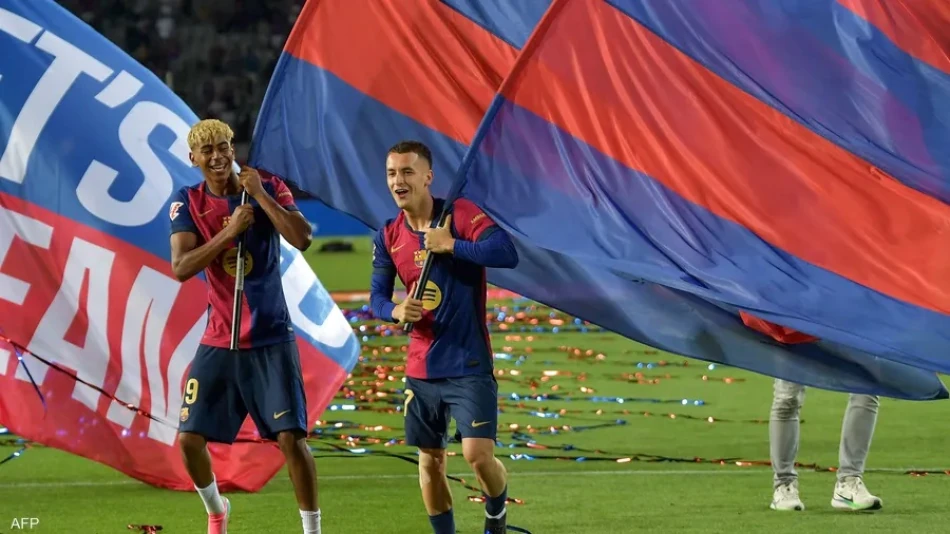
Barcelona Secures Sponsorship Deal with Democratic Republic of Congo
Barcelona Strikes Unconventional $50M Tourism Deal with Democratic Republic of Congo
FC Barcelona has agreed to a four-year sponsorship deal worth €44 million ($50 million) with the Democratic Republic of Congo's tourism authority, marking one of the most unusual partnerships in football as the cash-strapped Catalan giants scramble to stabilize their finances. The agreement will see "DRC, Heart of Africa" emblazoned on the club's training jerseys as part of a tourism promotion campaign.
Financial Desperation Drives Creative Partnerships
The deal, worth €11 million per season, represents Barcelona's latest attempt to generate revenue amid ongoing financial turmoil. Last season, the club faced the embarrassing situation of being unable to register new signings Dani Olmo and promising talent Pau Víctor due to La Liga's strict financial fair play rules requiring clubs to balance their books.
According to reports from Mundo Deportivo, negotiations with the DRC's tourism board have concluded successfully, with final details expected to be ironed out within days. The partnership will see French-language branding promoting the Central African nation appear on Barcelona's training kit.
Unconventional Revenue Streams in Modern Football
While major European clubs typically partner with global corporations or financial institutions, Barcelona's agreement with the DRC highlights how financial constraints can drive creative sponsorship solutions. The deal mirrors similar tourism-focused partnerships, though few involve training kit sponsorship rather than primary jersey placement.
Market Context and Precedent
Barcelona's financial struggles stem from years of mismanagement, including the costly Neymar transfer saga and inflated player wages that pushed the club's debt beyond €1 billion. The club has been forced to sell future television rights and activate various "economic levers" to remain competitive while complying with financial regulations.
Tourism boards have increasingly turned to sports marketing as a soft power tool, with countries like Rwanda sponsoring Arsenal and Qatar's extensive football investments. However, the DRC's partnership with Barcelona represents a significant investment for a nation facing economic challenges.
Player Sales Expected to Complement Sponsorship Revenue
Beyond sponsorship deals, Barcelona continues pursuing player sales to balance their books. German goalkeeper Marc-André ter Stegen, Danish defender Andreas Christensen, and young talent Pau Víctor are reportedly among the candidates for departure before the summer transfer window closes.
This dual approach of securing unconventional sponsorships while offloading players reflects the club's pragmatic shift from their previous free-spending era. The strategy may prove essential for Barcelona to avoid further registration issues and maintain their competitive edge in La Liga and European competitions.
Implications for Football's Commercial Landscape
The Barcelona-DRC partnership could signal a broader trend of clubs exploring non-traditional revenue sources as traditional corporate sponsorships become increasingly competitive. For developing nations, such deals offer unprecedented global exposure through association with elite football clubs, potentially boosting tourism and international perception.
While €44 million represents a modest sum compared to Barcelona's historical spending, it provides crucial breathing room as the club rebuilds its financial foundation. The success of this partnership may encourage other clubs facing similar constraints to explore creative sponsorship opportunities beyond conventional corporate partnerships.
Most Viewed News

 Sara Khaled
Sara Khaled






